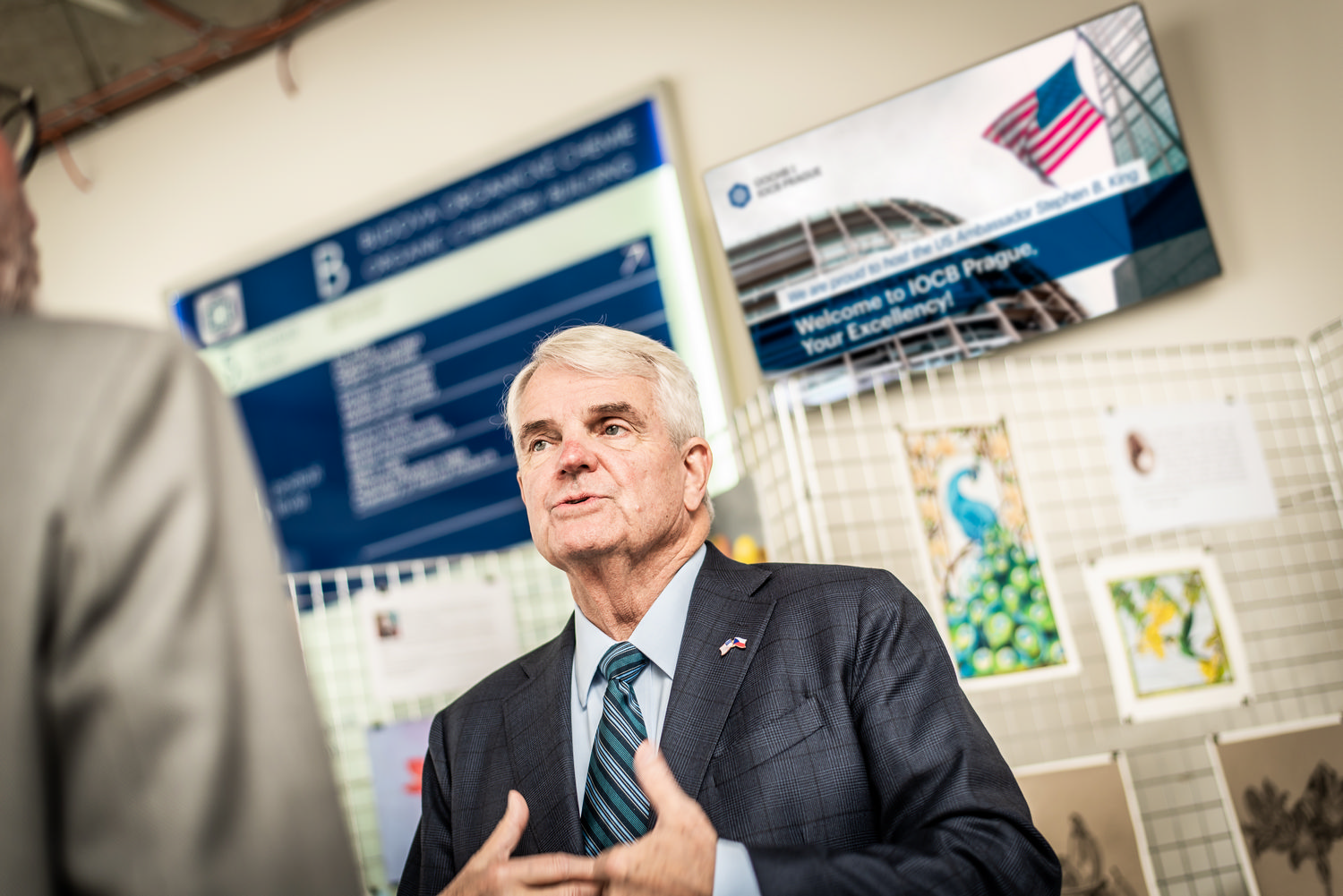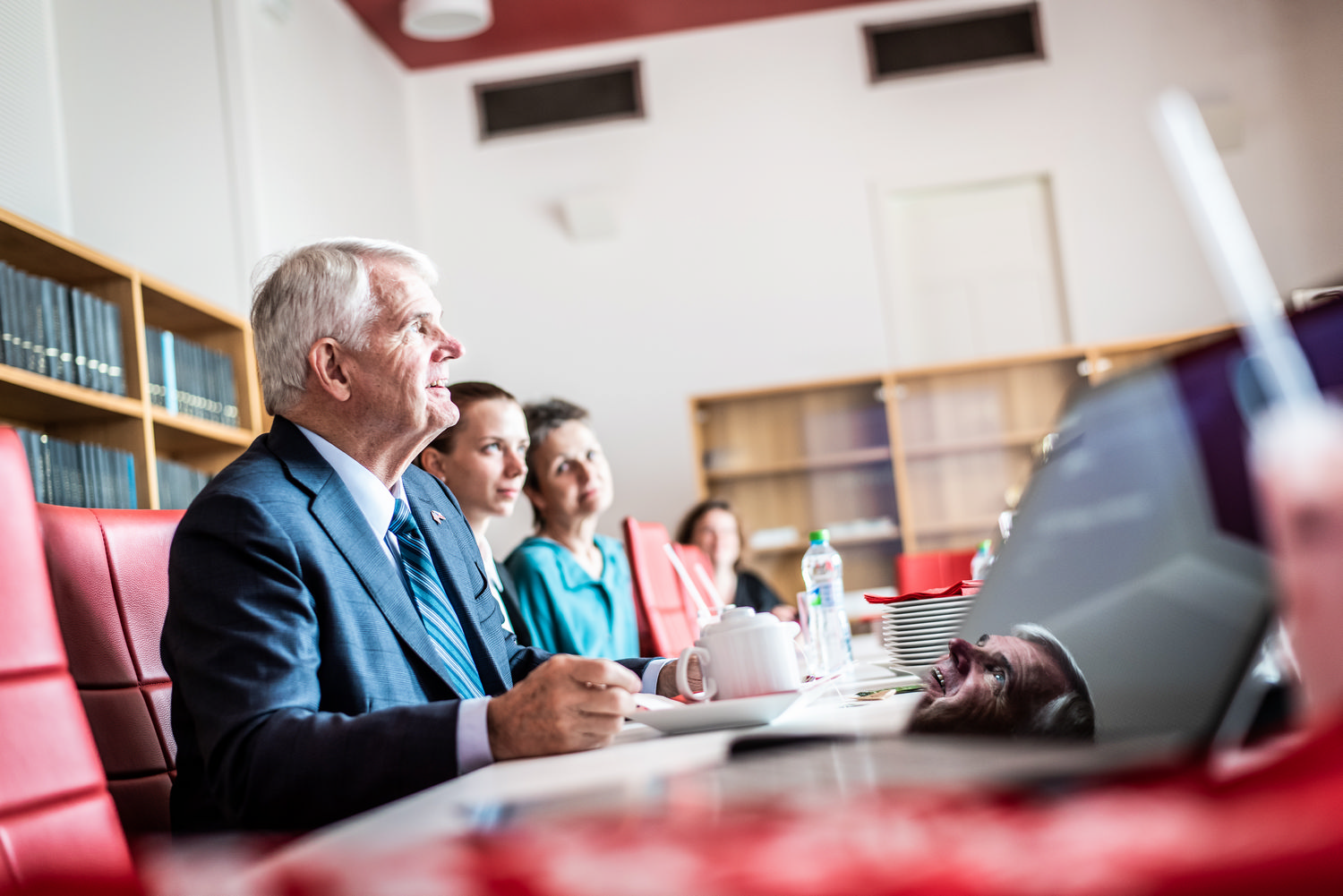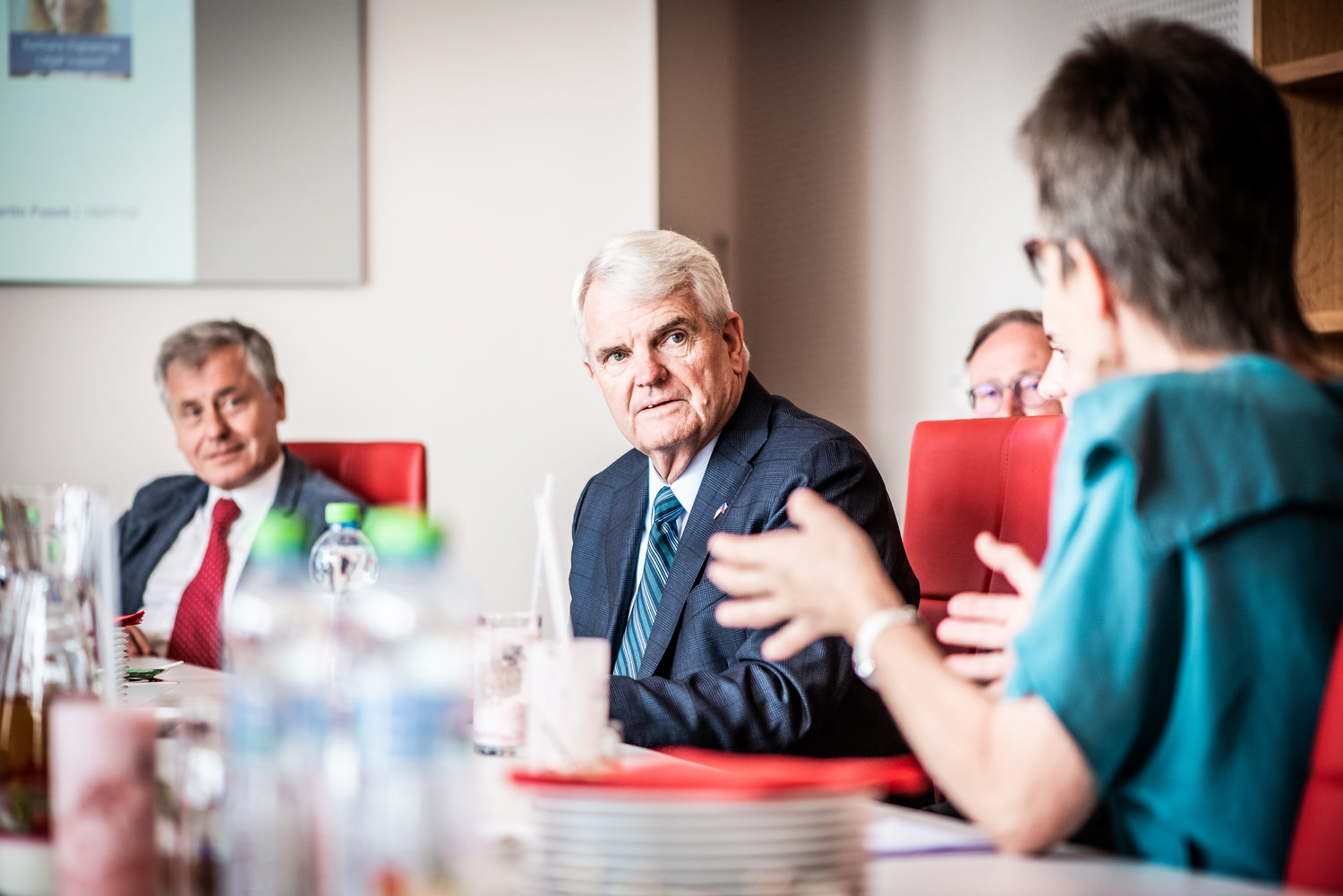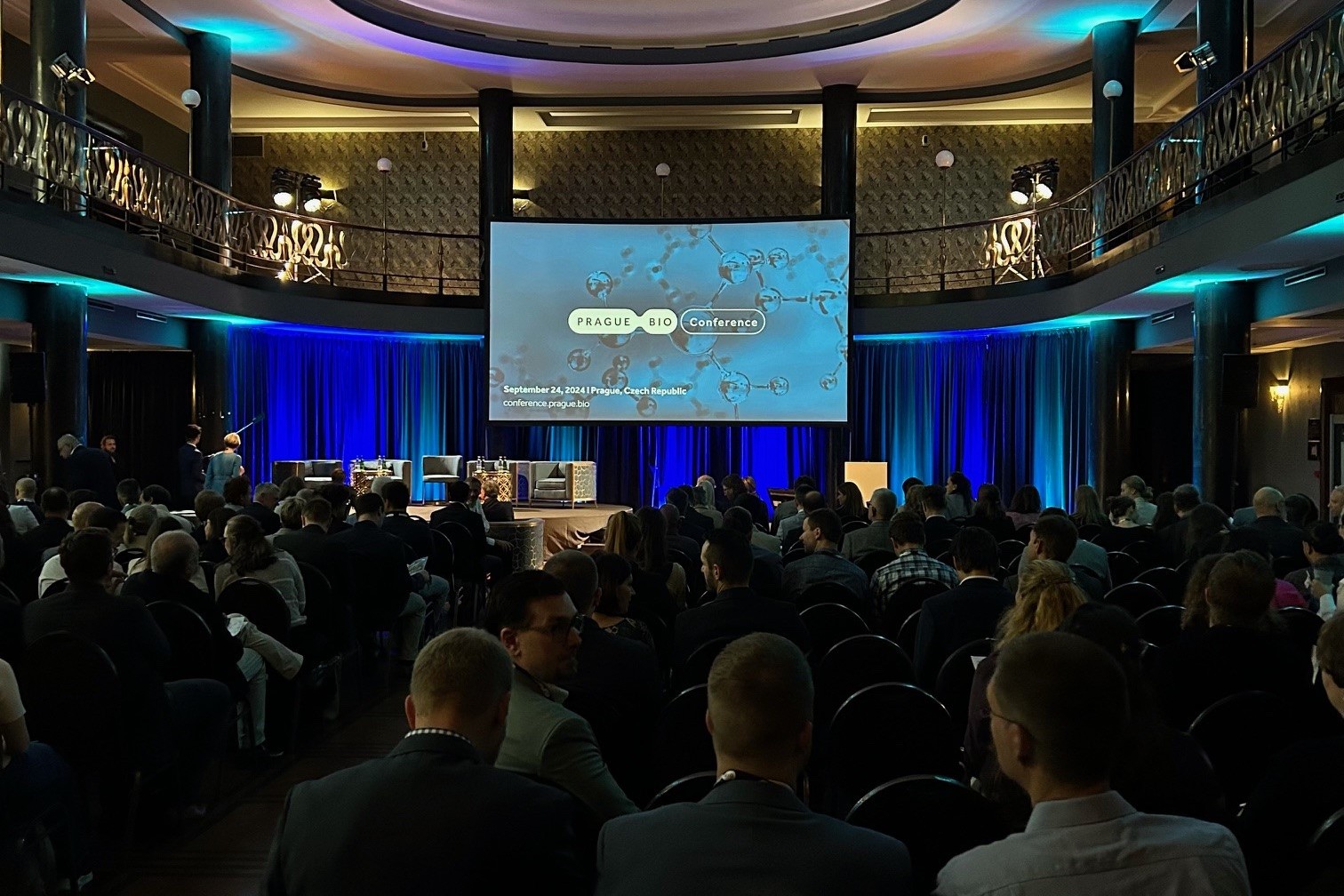
On Tuesday, July 16, IOCB Prague had the pleasure of hosting His Excellency, Mr. Stephen B. King, the Ambassador of the United States of America to the Czech Republic. He visited the labs of Zlatko Janeba (Medicinal Chemistry of Nucleotide Analogues), Edward Curtis (Functional Potential of Nucleic Acids), and the NMR Spectroscopy group led by David Šaman.
A good part of the ambassador’s visit was dedicated to an open and frank discussion with IOCB director Dr. Zdeněk Hostomský and Prof. Martin Fusek, IOCB vice-director and CEO of IOCB Tech. Ambassador King was interested in the latest developments in the field of IOCB applied research and license agreements with major pharmaceutical companies from the United States and other countries, and he also enquired about obstacles restricting or inhibiting further IOCB progress.
As both Zdeněk Hostomský and Martin Fusek agreed, the current major issue in the context of the Czech Republic is the ever-increasing bureaucratization of science. With unnecessary bureaucracy, the work of researchers switches from science to paperwork (excessive rules and extremely detailed control of national grant support or complicated public tenders for common consumables are good examples). Moreover, in the world of technology transfer, fast and flexible negotiations with interested industry partners are essential to successful agreement closure, and lengthy approval processes on different levels may lead to a slowdown and failure of negotiations even when the project is highly promising and potentially of great benefit to society.
IOCB representatives agreed there is much the Czech academic and administrative environment could learn from the US in terms of entrepreneurial spirit and risk-taking affiliated with bringing new ideas, technologies, and products to the market.
“We are trying to understand why so many things in basic and applied research are so much more complicated here than in big countries like the United States and even in small countries like Israel. We hope to find some clues and do something about it,” says Zdeněk Hostomský.
Ambassador King expressed his support for flexibility and open-mindedness in the relationship between research and technology transfer. IOCB Prague and the US Embassy plan to join efforts to organize a workshop with participants from both the United States and the Czech Republic to examine how to streamline bureaucracy in science in the near future.
“Our institute has a longstanding cooperation with both academic and commercial partners in the USA. It was great to have the opportunity to share our experiences with the ambassador and to hear his support for our efforts,” adds Martin Fusek.















